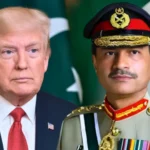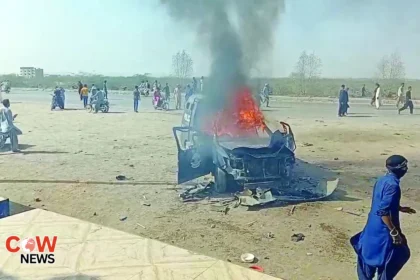New Delhi/Washington(TheCOWNews Digital)India’s ambitious Operation Sandur has ended in strategic and diplomatic failure, leaving Prime Minister Narendra Modi’s government facing sharp global criticism and increasing isolation on the world stage. The operation, intended to assert Indian dominance and isolate Pakistan, has instead backfired, with international opinion shifting in Pakistan’s favor.
According to a scathing analysis published by The Wire, Modi’s so-called “multi-alliance strategy” fell flat, garnering virtually no support from key international players. Notably, China not only refrained from backing India but openly sided with Pakistan, providing satellite intelligence and advanced air defense support during the conflict. The report also alleges that China signaled it could restrict the flow of the Brahmaputra River in response to India’s threats of violating the Indus Waters Treaty.
The Wire further criticized the Modi administration for overplaying its hand diplomatically while underestimating Pakistan’s ability to counter both militarily and globally. The analysis underlined that India’s claims of military superiority failed to gain traction internationally, while Pakistan gained both strategic ground and diplomatic recognition.
At the United Nations Security Council (UNSC), India’s efforts to label Pakistan as a sponsor of terrorism fell flat. A UNSC press release regarding the conflict omitted any reference to Pakistan or the alleged terror group, dealing a serious blow to India’s narrative. Diplomatic observers interpret this as a subtle rejection of India’s position by the international community.
Adding to India’s woes, former U.S. President Donald Trump played a decisive role in shifting the geopolitical conversation. Trump’s recent intervention emphasized the Kashmir dispute and validated Pakistan’s stance, undermining India’s long-standing attempt to classify Kashmir as an internal matter. His public statements, along with his recent high-level engagement with Pakistani Field Marshal Syed Asim Munir, reflect Washington’s changing tone.
Sources in Washington confirm that CENTCOM Commander General Erik Kurilla and Trump have openly praised Pakistan’s leadership, referring to Field Marshal Munir’s diplomatic and strategic poise during recent tensions. Munir’s visit to the U.S. and the subsequent military dialogues signal a renewed military partnership between Islamabad and Washington, a development New Delhi had hoped to prevent.
Perhaps most damaging for India is the shifting narrative within South Asia and beyond. As Pakistan increases its international engagements, India finds itself more isolated, its efforts to diplomatically marginalize Islamabad appearing increasingly ineffective.
Experts now warn that India’s approach may have long-term repercussions on its global ambitions. “Modi’s diplomatic miscalculations have not only weakened India’s stance on Pakistan but also jeopardized its broader aspiration of becoming a regional superpower,” noted a retired Indian diplomat speaking on condition of anonymity.
In contrast, Pakistan’s diplomatic maneuvering, strategic patience, and timely alliances are yielding visible results. With the U.S., China, and elements within the UN showing openness toward Pakistan’s position, Islamabad may emerge from this crisis with enhanced global stature.







